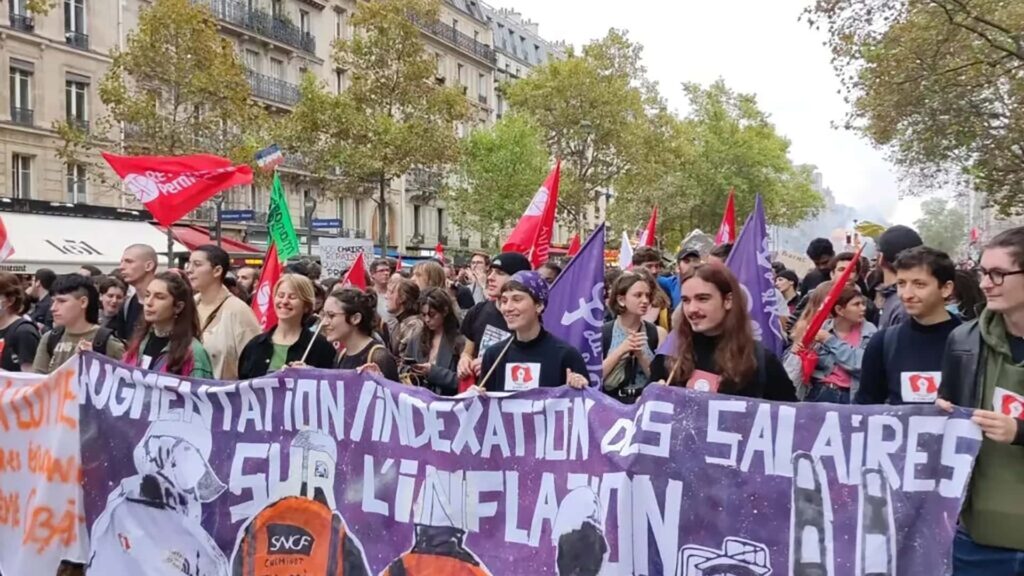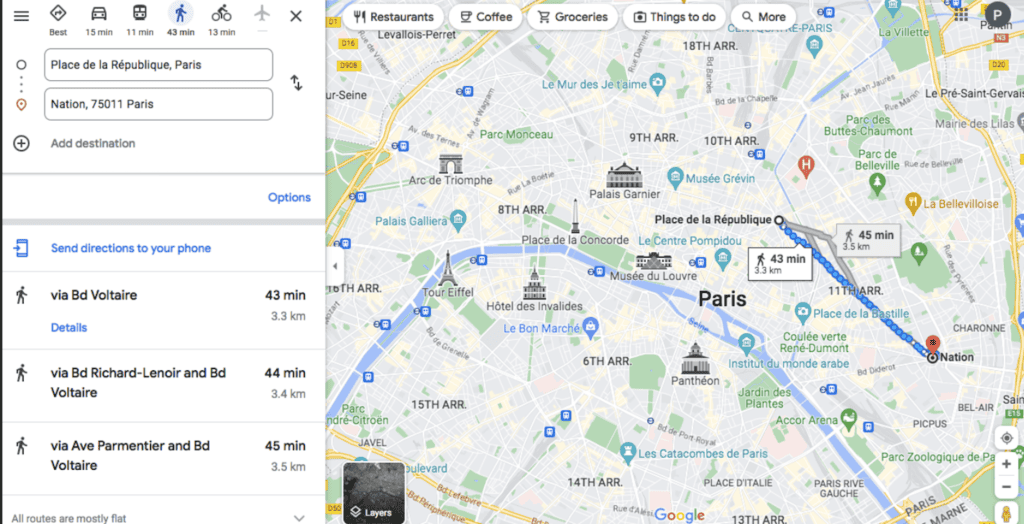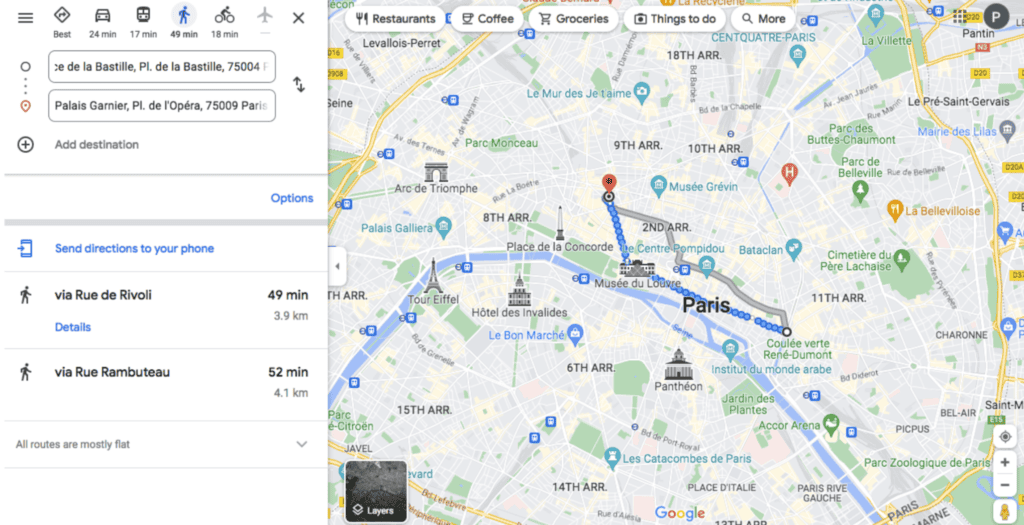Many visitors from around the world plan to visit Paris in the springtime. That dreamy time of year when flowers are blooming, temperatures start warming up and everything seems bright and fresh. But for those visiting Paris this spring, an unexpected element has sprung: strikes!
We understand the concerns you may have about traveling to Paris, and France in general, with the ongoing strikes. To help you feel more confident and enjoy your trip to the fullest, we’ve put together some information to help you navigate Paris during this time.
Why are people striking right now?
French President Emmanuel Macron is pushing through a pension reform which will raise France’s retirement age from 62 to 64. Further fueling the strikers’ resentment is the fact that he’s been using constitutional powers to do so. While the new law hasn’t come into effect yet, France’s organized labor unions have been striking to express their extreme discontent with the idea of the law.
What actually happens during a strike?
First, it’s important to know that strikes and protests are not spontaneous or random. The strikes are always scheduled and announced in advance with heavy assigned police presence. On national strike days, the days when unions have organized protests, each protest has its predetermined route and time. This means you have no chance of walking down a street and suddenly finding yourself caught up in a protest. Signs and barricades blocking streets for the protest route will be obvious and easy to spot, and since they’re organized in advance you’ll be able to check which areas to avoid ahead of time.
Since those participating in the strikes are not paid for the days they’re out in the streets, they generally cannot afford to be unpaid for too many days in a given month. Because of this, we’ve been seeing a maximum of one strike per week (Monday-Friday). This means if you’ve planned a weeklong trip to Paris, there will likely only be one day during your trip when a strike will be scheduled.
During the day, protests are almost always peaceful, with people calmly and orderly following the scheduled strike route, with lively parade party music and ambiance. The violent moments you see depicted in online images – burning trash, vandalism, clashing with police – tend to only take place at the end of the day or at night in certain areas. There is no real danger of any French resident or tourist getting hurt unless they are actively trying to insert themselves in those more dramatic moments.
How could the strike affect my trip?
The main issue most tourists face when vacationing with ongoing strikes concerns transportation. Some public transportation may be affected, which means the frequency of
metros could be reduced, and some trains and bus routes may not operate for the duration of the protests.
Because Parisians are aware of these potential transport issues, many turn to taxis and ridesharing companies to get around town. You can actually book a taxi in advance on the G7 website, one of France’s top taxi companies. Uber is also commonly used in France and functions the same way it does in the United States and other countries. Citymapper is also an excellent transport app that includes real-time information which will show metro or bus lines that are closed or delayed.
It’s worth keeping in mind, though, that on the day of a scheduled strike there might be many people attempting to grab a taxi or rideshare at the same time. If you want to make sure you have a ride booked, it’s a good idea to think about scheduling a private transfer in advance. These can be arranged online or feel free to contact us on our website or by email (info@parisandbeyondtours.net) and we can set one up for you.
Usually the unions like to pick a strike date between Tuesday and Thursday. In March, there were 2 strikes on Tuesdays, 1 strike on a Wednesday, and 1 strike on a Thursday. The first two announced strikes for the month of April were also on Thursdays.

Should I still travel to France right now, or is it best to postpone my trip?
Keep your vacation plans! We do not recommend postponing or canceling your trip. As we outlined above, the risk of danger is extremely low, so you won’t need to take any more safety precautions than you normally would while traveling in a big city.
Tourists who have visited France during past strikes have actually commented to us that it made their trip a bit more memorable (hey, we were there during those big strikes you saw on the news!). Strikes are also a big part of French culture, so if you’re able to deal with a few minor potential disruptions during your trip, you can also say you were there during a time when you got to learn a bit more about the famous French revolutionary spirit.
While there is a chance your tour itineraries could change, there will likely be no major interruptions and companies, including us, will do the best we can to accommodate all your trip wish-lists. In the event that you have a tour booked at the Louvre Museum and the museum opens late because of the strikes, for example, you could postpone your tour to a later time in the day, or potentially to another day during your trip. You might also decide to book a walking tour instead, since those types of tours remain largely unaffected by the strikes. There are many potential back-up plans in the (fairly unlikely) event that your tour plans need to change.
The strike dates are generally announced one week in advance. With some preparation, flexibility and level-headedness, we’ll do our best to ensure you still have a great time!
Okay, I’m still going! What can I do to best prepare myself with the ongoing situation?
If possible, we recommend booking more walking tours or tours that are in areas that the strikes tend to avoid. These would include tours in Montmartre, the Luxembourg Gardens, the Marais and certain food tours, just to name a few. For example, a Highlights and Pastry tour will still allow you to see the main Paris sites (and eat some delicious pastries) while steering clear of the main strike zones.
Some of the main Areas the Strikes have happened
Place de la République -> Nation

Place de l’Opéra Garnier -> Bastille

More tips
Remember, it’s also a good idea to think about planning your transportation in advance, whether this be with a taxi, rideshare app or private car transfer.
Plus, don’t forget to download a few useful apps before you go:
- Whatsapp – an easy way to text/call friends and family for free when overseas
- Bonjour RATP – find itineraries and routes for public transport networks
- Citymapper – find itineraries and real-time data for all types of transport (walking, biking, metro, bus, etc)
- G7 taxis – book a taxi
- Uber – book a rideshare
And above all, don’t stress too much. Paris remains beautiful and magical, and the springtime flowers are still blooming. See you soon!






